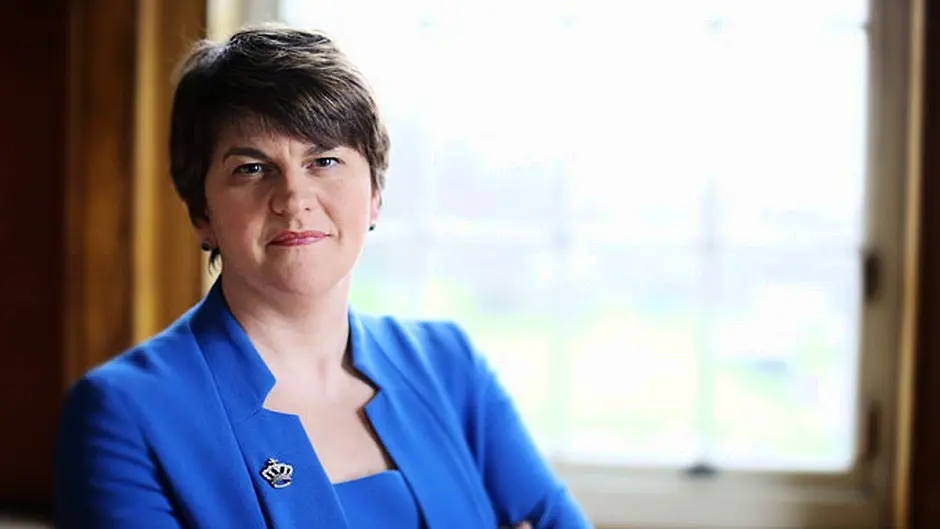As we pass the first anniversary of the 2017 Northern Ireland Assembly election, it is high time they stopped the petty bickering and focussed minds on how the two main parties can reach a constructive agreement.
ONE year ago this weekend, the majority of those entitled to vote in Northern Ireland went to the polls and elected 90 members of the legislative assembly (MLAs), who they had hoped would represent their interests and, as they should have been doing, pass laws and budgets for health, education, the environment, social work and housing. But, they have been let down really badly by those they elected because of the failure of the main parties to form a functioning executive to carry out the devolved functions of the Northern Ireland Assembly.
Unashamedly, they draw down their salaries as MLAs, while doing little or nothing to represent the interests of the people who elected them. Nice work, if you can get it, but immoral if people are not doing the job they are being paid to do.
It was somewhat ironic that another marriage of minds between Sinn Féin and the Democratic Unionist Party failed to materialise on St Valentine’s Day, but there is little love lost there anyway. What made matters worse for the Irish and British prime ministers was that they had both rushed to Belfast two days beforehand to talk up the imminent formation of a new Northern Ireland executive, only for the talks to founder almost as soon as they were gone back to their respective capital cities.
This intervention was described by Fianna Fáil leader Micheál Martin as ‘naïve’ due to the inexperience of the two government heads and, while this may have seemed a tad disingenuous coming from a hurler on the ditch, it was fair enough comment, given that DUP leader Arlene Foster also cited British Prime Minister Theresa May’s premature visit to Belfast as one of the reasons the talks broke down. A spokesman for Ms Foster described the visit of Ms May and Taoiseach Leo Varadkar as a ‘distraction,’ which had raised expectations and the parties were unable to build on the progress they had made the previous week.
The DUP leader called on Her Majesty’s government to step in and set budgets and make policy decisions for Northern Ireland for the time being, but indicated her long-term preference for devolved government from Stormont, saying: ‘Northern Ireland is best governed by local ministers who are accountable to local people.’ Both Sinn Féin and the DUP have been playing the blame game with one another for the past fortnight over who they see as being responsible for the collapse of the talks.
As we pass the first anniversary of the 2017 Northern Ireland Assembly election, it is high time they stopped the petty bickering and focussed minds on how the two main parties can reach a constructive agreement to get a power-sharing executive up and running again. Since the previous executive last met just short of 14 months ago, the region has been run by civil servants and the talks on Britain’s exit from the European Union are well under way with no proper political input from Northern Ireland – the area of the UK that probably has the most to lose as a result of Brexit and the majority of whose voters in the referendum would have preferred to remain in the EU.
Expressing his disappointment at the latest breakdown of talks, Tánaiste and Minister for Foreign Affairs and Trade, Simon Coveney, called for reflection, saying ‘Northern Ireland needs a government.’ He was mindful that, ‘as co-guarantors of Good Friday Agreement, the UK and Irish governments have an obligation to uphold and protect the letter and spirit of that Agreement.’
But, the two governments don’t seem to be able to get Sinn Féin and the DUP to rise above the tribal divisions that define them. Unionists in the North are already well known for their intransigence, but Sinn Féin are proving a good match for them in this regard at the moment.
By not having an executive in place now, Northern Ireland is losing out on the €1bn in funding for the region, negotiated by the DUP as part of the price of entering a confidence and supply agreement to support Theresa May’s minority Conservative Party government. If they don’t get on with it soon, both the PM and the money could both be gone as she is treading on thin ice, politically, over her handling of the whole Brexit process.
The parties cannot be that far apart in terms of making a final breakthrough in the talks, so let’s hope that, having had time to stand back and reflect, they will resume the negotiations soon and get to work on doing what they were elected this time last year to do.








